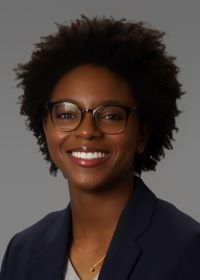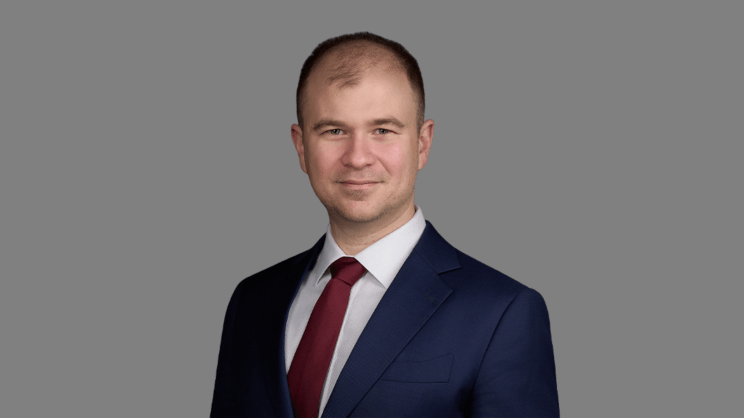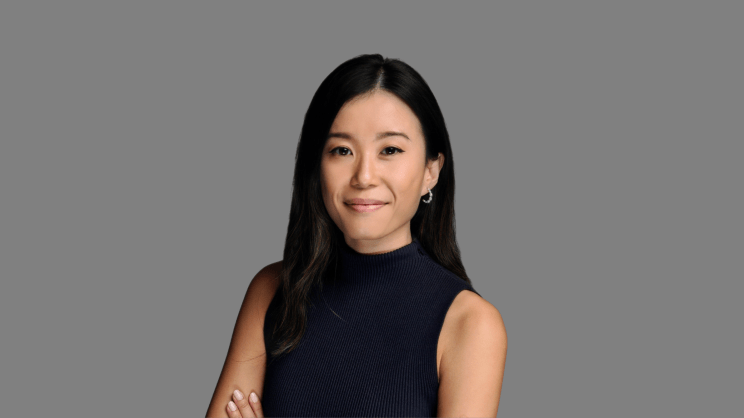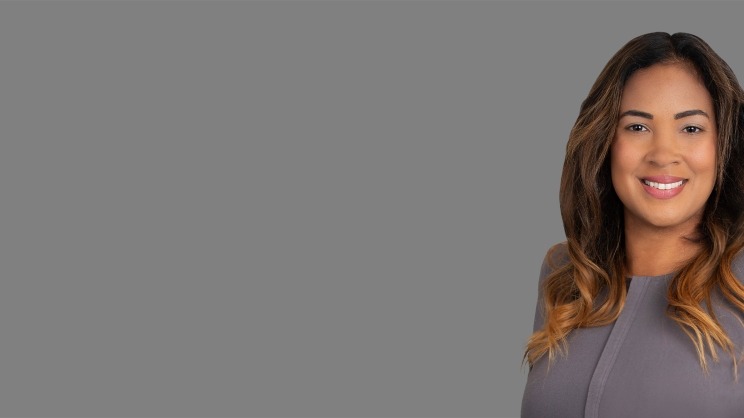Campus Spotlight: Jacinta Addo-Badu

Jacinta Addo-Badu is an analyst with Alvarez & Marsal’s (A&M) Transaction Advisory Group in Chicago, Illinois. She earned a bachelor’s and master’s degree from Binghamton University.
In the following Q&A, Jacinta shares her insights on the value of seeking extra help and knowledge beyond the classroom, her decision to join A&M due to its entrepreneurial atmosphere and talented professionals and her challenges and growth in a virtual work environment. She also emphasizes the importance of good habits and soft skills.
What skills or experiences did you gain during college that have been valuable in your career thus far?
Regardless of how often I read a chapter or reviewed notes I took from lectures, nothing compared to attending office hours and talking with my professors. The extra help and knowledge they were willing to share allowed me to understand that the material delivered in class only scratched the surface.
Whenever I work on a deal, I ask whomever I am working with for similar insight on past deals to see if they can replicate their results, going through the exercise using my own process. Through this, I have improved my understanding of the deal process and been able to work on my technical skills while also building relationships.
Why did you choose to join A&M full-time?
As I learned more about deals, my interest grew. I gathered that deal work is generally the same wherever you do it, but the difference was that I could take my career by the reins and have fun with it at A&M, even at a junior level. The firm has an entrepreneurial atmosphere, and it encourages even younger staff to take ownership of their work product, projects or any initiatives they think are beneficial to the firm. If you are willing to put in the effort to do the work, the platform is yours to get involved in projects and other company initiatives as much as you want.
From when I interned to when I accepted my offer, A&M hired more talent from the Big Four. As I saw talented and competent individuals leaving their firms and joining A&M, I was excited to work with and learn from them. A&M was growing and making waves in the industry, and I wanted to contribute to and be a part of that continued disruption.
How did you start your career, and what were some of the biggest challenges you faced early on?
The virtual environment was and still is something that challenges me. My first job out of college was working with A&M when the effects of the pandemic changed what work looked like. Working virtually with teammates was convenient, but I learned better in person. Receiving feedback at the beginning was also challenging because I assumed everyone would be candid and always give feedback voluntarily. I have since learned that being proactive and soliciting feedback works better for me. I especially like those I work with to be candid and detailed in their feedback, so I have a clear idea about what I need to address. It has been helpful for me and my colleagues since I asked them to be direct in their assessment of my work. This opened the door for people to be more willing to teach me and less afraid of hurting my feelings.
How do you stay organized and manage your time effectively, especially when faced with competing priorities and deadlines?
One of my colleagues once told me that everything is important and needs to be addressed promptly. In other words, everything is expected to have been completed yesterday. As funny as that is, it underscored that time management is crucial. I am getting better at managing my time. I found that asking deal leads about the deal timeline and being transparent with them about other projects and commitments helped me better manage my workload and prioritize some projects over others while remaining flexible to pivot to something new when needed. I time block on my calendar and set my Microsoft Teams status to “busy”. This way, I can filter out non-urgent messages so that I am not distracted while working. Time blocking helps me estimate how long I think certain tasks will take; it also trains me to become more efficient at my tasks. I tend to overcommunicate with my deal leads so they know how I’m faring and if there are any constraints with which they can help.
I also keep a virtual planner for my daily tasks and a paper planner to aggregate my tasks on a higher level. Because I am always around my devices, I can easily access my virtual planner, which contains the tasks I need to complete for the day at a more granular level, while my paper planner remains high-level as a general reminder.
What do you consider to be your biggest accomplishment so far in your career?
Joining the Global Transaction Analytics (GTA) team has been my biggest career accomplishment so far. I do not have a data analytics background, but I participated in the hybrid internship, allowing me to experience traditional due diligence and the data analytics arm of due diligence. Initially, I thought I would not be too keen on analytics rotation. I have a pure accounting background, so I did not think data analytics was an option; it never crossed my mind. Now that I am on the GTA team, I am learning to become comfortable with being uncomfortable and feel an immense sense of pride in being able to work in a field I previously told myself that I could not enter. I am always looking to improve my analytics skills to be more helpful to the team, but I am also learning to see accounting through a new lens through this role.
In hindsight, what advice would you give your college self or other recent graduates about navigating the transition from school to work?
Preparing yourself for first impressions is important when navigating the transition from school to work. Whatever good or bad habits we have developed in college can either be a great help or detriment in our professional lives early on. Simple things like punctuality, respect, looking presentable, being organized, having a positive attitude and asking meaningful questions, among others, cannot be overlooked. As time progresses, you will become more adept at your role by working every day, but having those soft skills and good habits are the foundation on which your career is built and can complement your technical skills to make you a well-rounded and useful team member.
What are your career goals and aspirations for the next few years?
As a data analyst, my focus in the coming years is to further develop my technical skills, especially outside of work. I am tapping into external sources to improve my analytics skills and training myself with our current tools. I am also looking forward to learning new software that is quickly becoming the widely used tool for clients and competitors in the analytics space. I also want to keep my accounting knowledge current and build upon it so that I will utilize the firm’s resources such as lunch-and-learns and firmwide training.
If you could have any superpower, what would it be and why?
Bending reality would be an amazing superpower to have. I sometimes struggle to convey my thoughts to others fully. So, if I can bend reality and have people step into a “reality” I have constructed, it would be worth more than simply painting a mental picture. They could experience taking a step into my mind in a vivid way. Writers, filmmakers and other professionals can do this to an extent with their craft, so I do not think this superpower is entirely farfetched.




